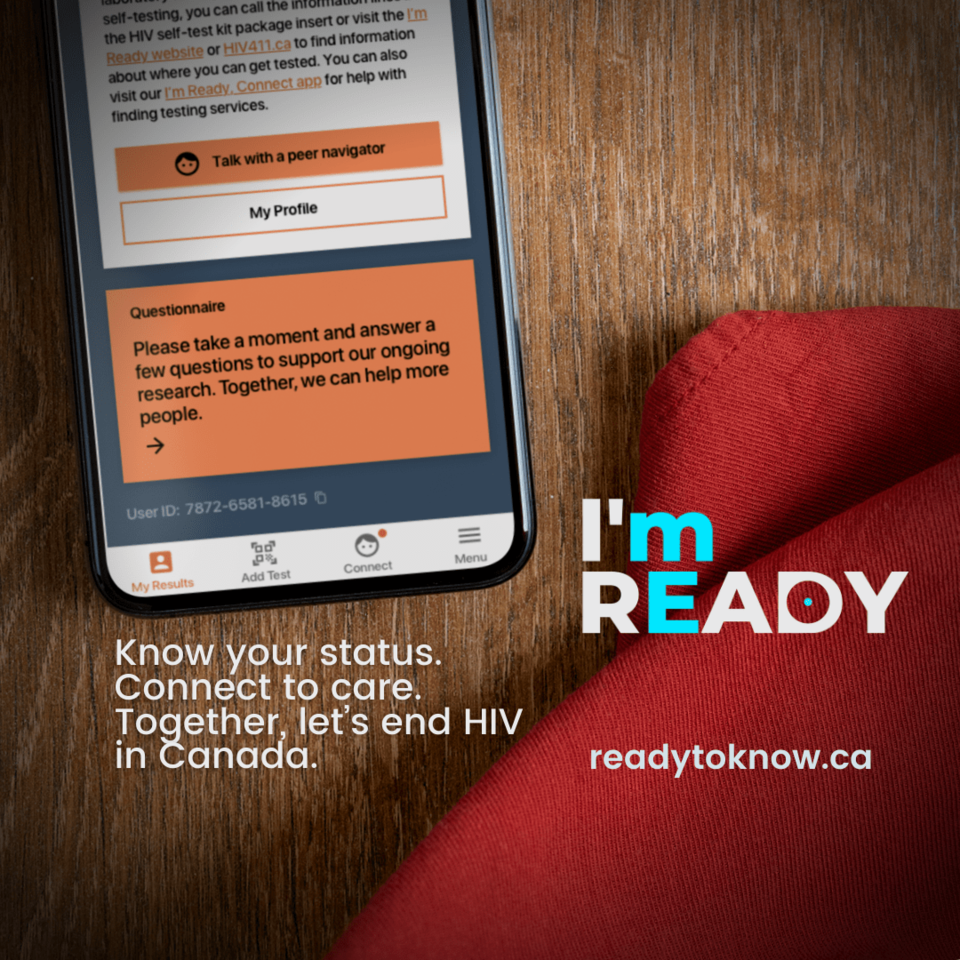ARCH is helping to distribute free HIV self-testing kits to residents as part of a larger research project being conducted across Canada on HIV testing.
Launched during Pride month on June 2, I’m Ready is a HIV self-testing research program from REACH Nexus, a research team behind Canada’s first approved HIV self-testing kit.
A release about the study says I’m Ready will be distributing 50,000 kits across the country to learn about ways of reducing barriers to accessing HIV testing and care.
The study works by having participants download an app from the research website prior to picking up a kit. Once a participant uses a kit, they will receive their results through the app and can participate in a survey about the testing process.
Besides testing, the app can also connect users with a telehealth provider and other educational material about treatment.
“This is a great resource for the interim until we can return back to normal again,” Tom Hammond, the director at HIV/AIDS Resources & Community Health (ARCH).
At ARCH, residents can get up to three of these testing kits for free, but those interested in obtaining a kit should call the clinic and download the app ahead of time.
“For me, it was really important for Guelph and for ARCH to be a part of this research project because it really does remove barriers for people to get tested for HIV,” said Hammond. “They can come to our office to get their kit, and they can take it home and they can do the testing at home, at their own time when they are ready, and then get their results within minutes.
“I think that increases testing rates within our city, potentially.”
Currently, there are less resources available for those seeking HIV testing due to COVID-19. Before, ARCH and WDG Public Health had been offering a point-of-care test which would have the user’s results in 30 minutes.
Along with this lack of resources, Hammond mentions people are still continuing to have sex during the pandemic, which is part of the reason ARCH decided to get involved with this research project.
“It’s really important for people to know their HIV status," said Hammond. "Because the quicker that we can get people diagnosed, and can connect them to care, we can immediately get them into treatment that’s highly effective and reduces any transmission.”
Despite technology helping to decrease the wait time for results, Hammond explains getting tested for HIV is still an anxiety-inducing experience for many due to the stigma that still exists around the disease.
“Everyone still sees HIV as a death sentence,” he said. “But it’s a relatively manageable chronic disease if you know your status, you’re in effective care and you’re on treatment.”
Even if the test results are negative, Hammond mentions ARCH is available for residents to learn more about regular testing, or participate in other education programs about HIV and its treatment options.
“Either way, if the results come out negative or positive, there is a role ARCH can play in supporting individuals,” said Hammond.
